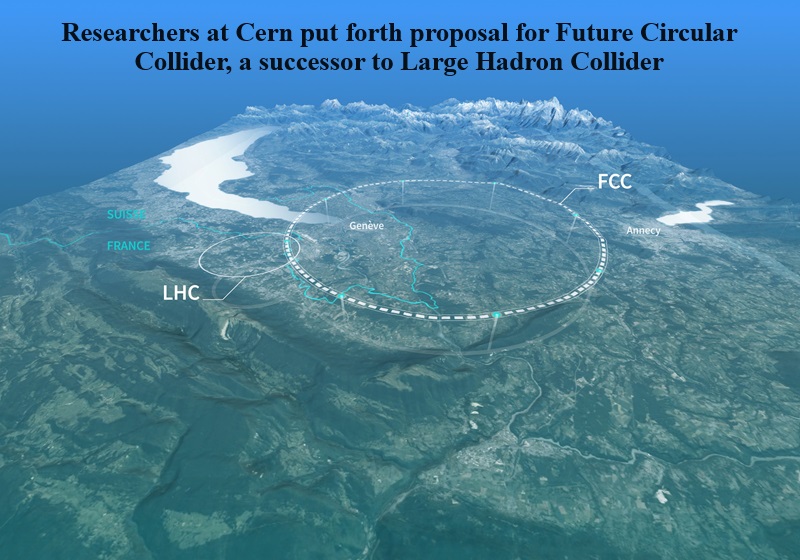
Scientists at CERN, the renowned particle accelerator facility in Switzerland, have proposed the development of the Future Circular Collider (FCC), a colossal successor to the Large Hadron Collider (LHC), according to a report by the BBC. The envisioned FCC, with an estimated cost of $21 billion, aims to revolutionize the field of physics by investigating the mysteries surrounding dark matter, dark energy, and other elusive particles that have remained beyond the reach of the LHC.
The Future Circular Collider is designed to be three times larger than its predecessor, boasting a circumference of 91 kilometers and double the depth. The ambitious project will be executed in two phases, each addressing distinct scientific objectives. The initial phase, set to commence in the mid-2040s, will focus on colliding electrons to explore the Higgs particle in unprecedented detail. Subsequently, the second phase, expected to launch in the 2070s, will leverage advanced magnets and heavier protons to probe for new particles that could expand our understanding of the fundamental building blocks of the universe.
The proposed FCC represents a monumental leap forward in particle physics, offering the potential to unveil groundbreaking discoveries and deepen our understanding of the universe’s fundamental principles. The scale and capabilities of the FCC underscore the commitment of the scientific community to push the boundaries of knowledge and address some of the most profound questions in physics.
As technology and scientific advancements continue to evolve, ambitious projects like the Future Circular Collider showcase the determination to explore uncharted territories, pushing the frontiers of human knowledge and unraveling the secrets of the universe. The global scientific community eagerly anticipates the potential insights and breakthroughs that the FCC may bring in the quest for a more comprehensive understanding of the cosmos.

Post Your Comments